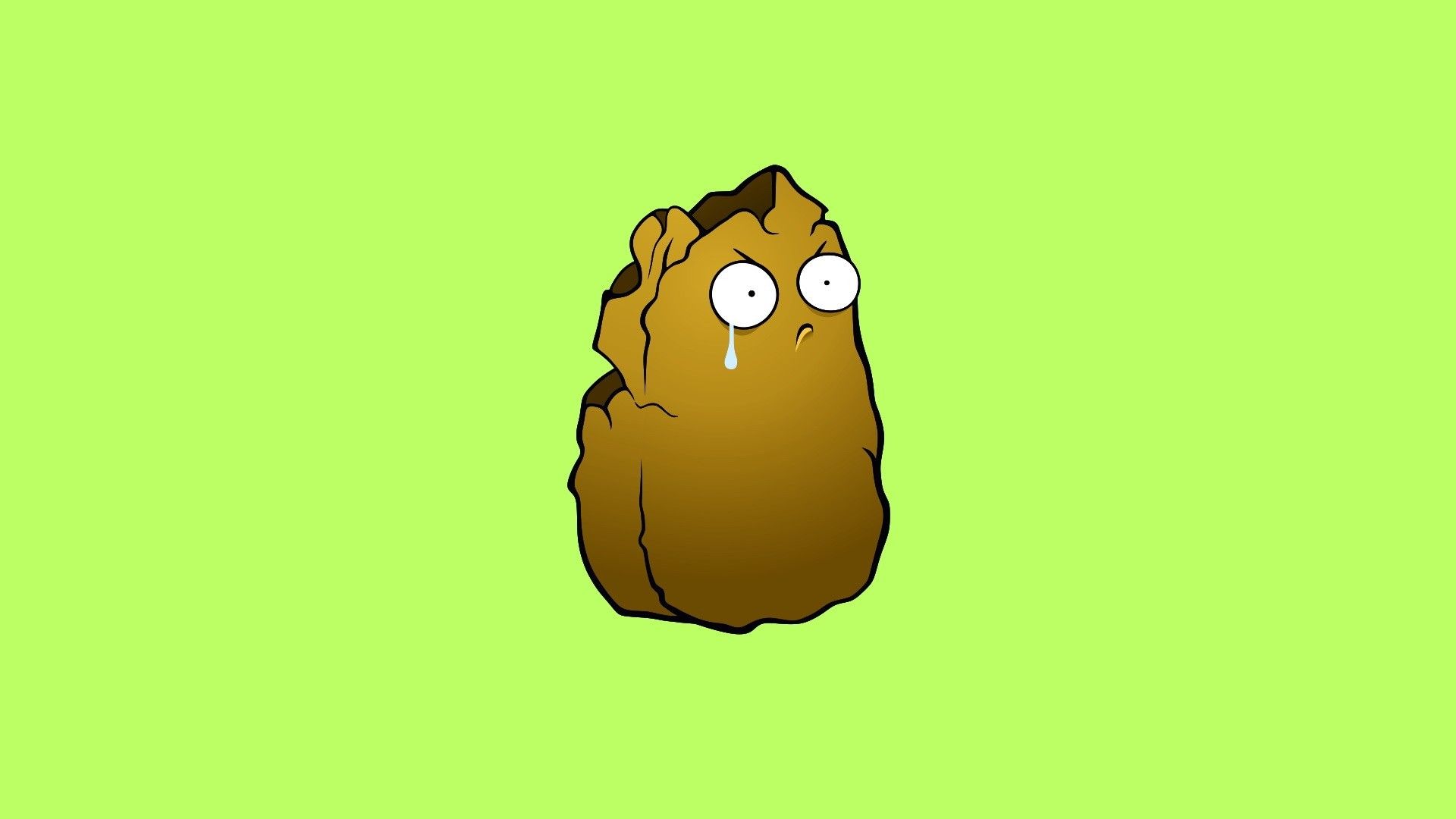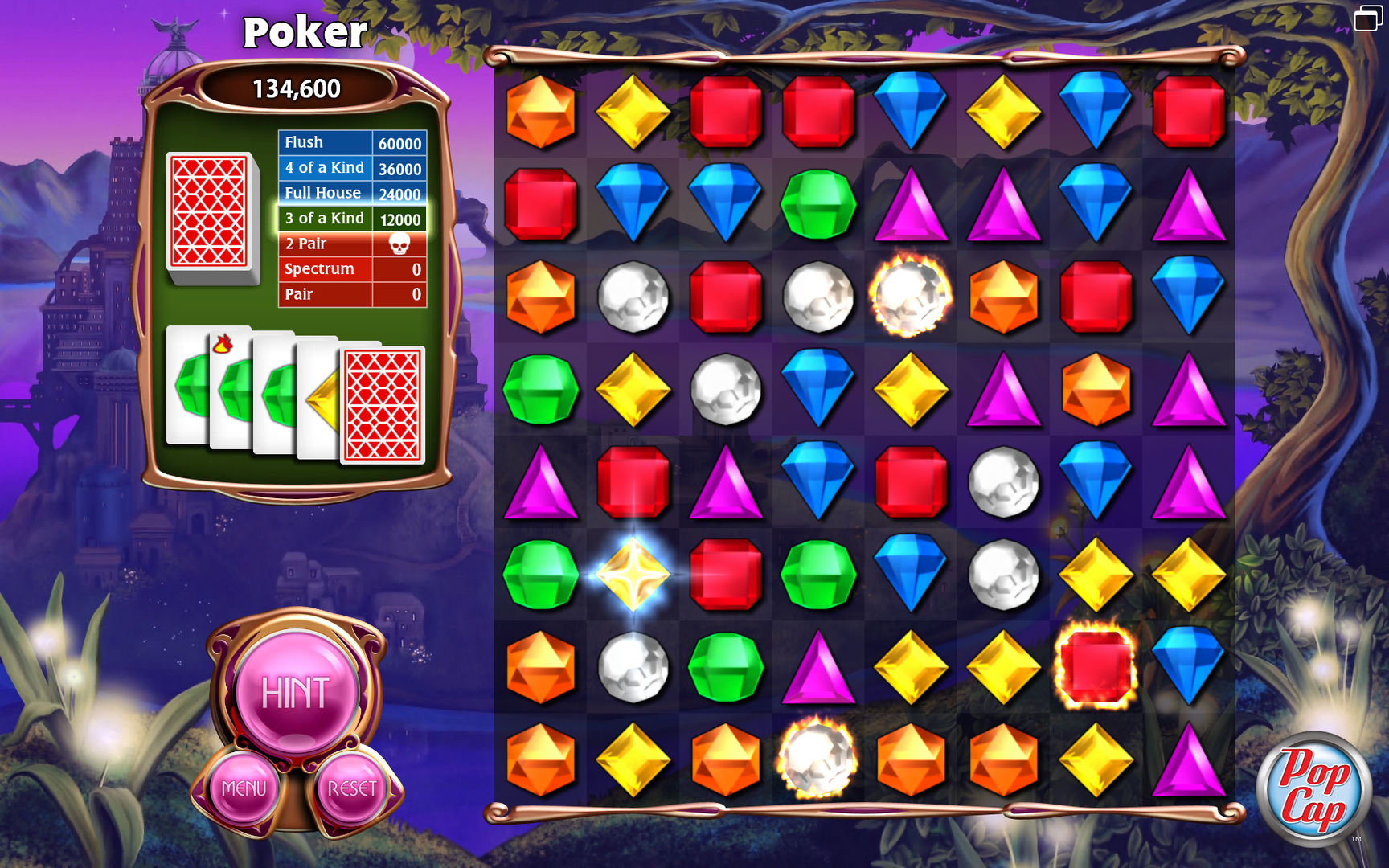I miss old PopCap like you miss old BioWare
Diamonds in my eyes.

From 2000 to 2010, one of the most important studios in videogames was making the kind of games you'd see dismissed off-hand today. If PopCap released Bejeweled out of the blue right now every YouTube comment would say "looks like a shit mobile game," but instead we live in the reality where PopCap dominated the casual game market for an entire decade, and now almost everything on mobile looks like a shit PopCap game.
PopCap was so important there was a Peggle game in the Orange Box. Valve's massive rectangular mic drop may be remembered for Portal, Team Fortress 2, and Half-Life 2: Episode Two, but it also contained Peggle Extreme—a crossover collaboration where Bjorn the unicorn had a headcrab and each of its 10 Peggle levels was themed around a Valve game. You'd clear a screen of orange pegs and hear the G-Man creepily utter, "Cleverly done."
These days Peggle Extreme is available free on Steam, where it stands as a glorious reminder of the days when PopCap ruled. It wasn't the only crossover between the casual gaming upstart and a major developer. Gyromancer was the result of a collaboration with Square Enix that married match-3 gem-spinning right out of Bejeweled Twist with JRPG storytelling and Final Fantasy monsters. Gyromancer lacked the PopCap sense of humor, which is probably why it's forgotten today, but it's another sign of an era when PopCap was so culturally significant UNESCO should have slapped World Heritage status on it.
Some of PopCap's games were endlessly replayable because they presented simple ideas wrapped in enough color and incident to keep them compelling. Chuzzle is a perfect example, another match-3 game but one where you dragged rows and columns of adorable fuzzballs and L-shaped combos were allowed. I still play it today, and my girlfriend laughs when she pokes her head into the study to see what hardcore PC strategy game I'm playing today only to find I'm Chuzzling again.
Best believe I'm still (playing) Bejeweled
The best of PopCap's games took those simple ideas and wrung every drop of juice out of them across a mania of modes. Bejeweled 3 has classic mode, timed mode, puzzle mode, and the buck wild "Zen mode" where you play endless Bejeweled while being reminded of your breathing as ambient sounds and mantras reinforce your choice of positive thinking, self-confidence, or weight loss. Four more unlockable modes let you match gems to rescue butterflies, prevent ice from freezing your grid, dynamite a mine full of diamonds, or complete poker hands in what is basically a Bejeweled take on Balatro 14 years before Balatro was a thing.

And Bejeweled 3 didn't even have one of the story modes where an entire campaign of whimsical oddness linked the levels together. Those really went above and beyond, with Bookworm Adventures having a plot about traveling through different genres of fiction and mythology you wouldn't expect from a word-forming puzzle game. Even Heavy Weapon, a Flash-style arcade sidescrolling shooter, came with a thick parody of "Red Menace" propaganda.
The jewel in this particular crown was Plants vs. Zombies, which felt like the culmination of everything PopCap had been working toward for the prior decade. While the variety of vegetable defenders made it more complicated than something like Insaniquarium, its lane-based format kept it simpler than the other tower defense games of the time. The story mode was light-touch, told through Crazy Dave's rants and barely literate letters from the undead, and unlocked an incredible variety of minigames and puzzle modes. As well as bowling and a zen garden and survival mode there were recreations of whole other PopCap games with undead theming, Insaniquarium appearing as Zombiquarium and Bejeweled as Beghouled.
The biggest gaming news, reviews and hardware deals
Keep up to date with the most important stories and the best deals, as picked by the PC Gamer team.
The traffic-cone zombies, even more shambling and pathetic than zombies usually are, were a perfect contrast with the bold-faced plants (whose almanac entries were written by cartoonist and PopCap regular Steve Notley, creator of Bob the Angry Flower). The climax of the game being a musical number with a singing sunflower performed by Laura Shigihara was the icing on the cake, but also feels like a relic of a distant time, a whole 'nother era of internet—a relic of a less cynical internet age.

PopCap's early games were often built on existing ideas, with Zuma a fairly blatant reskin of '90s arcade game Puzz Loop, while Peggle drew inspiration from pachinko and pinball, and Bejeweled's match-3 mechanics have been traced back to a Russian game called Shariki. But as casual games moved to Facebook and mobile, PopCap became the one to copy, with Candy Crush the most blatant example. When it joined them, trading the world of deluxe casual for freemium, it became just another crab in the bucket.
Apparently the studio was planning a shift to mobile and free-to-play games before being bought by EA, but that moment still marks a convenient line. Most of PopCap's games stopped coming out on PC and were full of offputting compulsion mechanics, while Plants vs. Zombies became a skin to stretch over a series of middling multiplayer shooters.
Rather than end on a down note, let me point out that the spirit of PopCap is alive and well in idiosyncratic indie games that take one simple idea and rinse it, usually with an offbeat story mode thrown in. There's Donut County, Octogeddon, Grey Alien's Regency Solitaire series, Peglin (basically Peggle with goblins), and Creepy Redneck Dinosaur Mansion 3 (basically an imaginary Dino Crisis spin-off from a world where "survival horror match-3 metroidvania" is a valid genre).
PopCap spent a decade coming up with new ways for us to match three things, whether we spun them in a circle or shot them out of a frog's mouth, and that level of creativity is still with us even if it's spread over a bunch of indie developers. I haven't seen anyone follow up on Bookworm Adventures, but fortunately that one did end up with de facto World Heritage status because you can still find it on the Internet Archive.

Jody's first computer was a Commodore 64, so he remembers having to use a code wheel to play Pool of Radiance. A former music journalist who interviewed everyone from Giorgio Moroder to Trent Reznor, Jody also co-hosted Australia's first radio show about videogames, Zed Games. He's written for Rock Paper Shotgun, The Big Issue, GamesRadar, Zam, Glixel, Five Out of Ten Magazine, and Playboy.com, whose cheques with the bunny logo made for fun conversations at the bank. Jody's first article for PC Gamer was about the audio of Alien Isolation, published in 2015, and since then he's written about why Silent Hill belongs on PC, why Recettear: An Item Shop's Tale is the best fantasy shopkeeper tycoon game, and how weird Lost Ark can get. Jody edited PC Gamer Indie from 2017 to 2018, and he eventually lived up to his promise to play every Warhammer videogame.
You must confirm your public display name before commenting
Please logout and then login again, you will then be prompted to enter your display name.

